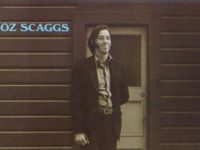Like Bonnie Raitt, Chris Smither is a blues-folk-rock singer who emerged from the Boston coffehouse scene of the sixties. Unlike Raitt, though, he never enjoyed the widespread success his colleague did, even when they both began recording careers in the early seventies. As a matter of fact, Smither’s biggest claim to fame is a couple of songs of his Raitt has covered: “Love You Like A Man” and “I Feel The Same.”
After a couple of good records that went nowhere nevertheless, Smither withdrew from recording and began about a twelve year period where, by his own account, was basically continuously drunk. He did put out an album in the mid-eighties, but his real comeback came about five years later. Another Way to Find You, recorded at the end of 1989 and released in 1991, began a string of an album every two of three years, all of which reveal a man who after all these years, is at the peak of his powers. Yes, some musicians actually do improve after they clean up.
For Another Way, Smither chose to record it the same way Cannonball Adderley taped “Mercy, Mercy, Mercy;” live in the studio with a hand-picked audience. You won’t find any between-songs banter that made Adderley known for a personality as huge as his person, but Smither’s musical performance does plenty enough talking on its own.
With no backing band, Smither expertly rips through a bevy of his own tunes while mixing in compositions by Bob Dylan, Elizabeth Cotton, Willie Dixon and other notable roots songwriters. One of these covers is “Statesboro Blues.”
Sure, Blind Willie McTell’s “Statesboro Blues” has been covered countless times, and why not? It’s a very malleable tune; you can take liberties with both the lyrics and the melody and make it your own. As long as you credit Blind Willie nobody is going to complain, and it’s often a good benchmark of how well you can play the blues. Probably the best-known version is the Allman Brothers’ performance of it from their 1971 classic Live At Fillmore East. That’s how I first came to know of the song and I’m sure most other baby-boomers got acquainted with it that way, too. For the longest time, it was my favorite version, too.
That is, until I heard Smither best it on Another Way.
Armed with only his acoustic six string and his voice, Smither precise picking that paces a rollicking gait but it’s the singing that puts the song over the top. He delivers the lines with no hesitation, and with a somewhat gravelly, Delta drawl that makes you swear he grew up black in Clarksdale, not white in New Orleans.
What Smither manages to do is bring “Statesboro” back to the Georgia town it was named after, while still sounding much different from McTell’s indigenous version. It’s just too well played to say that Smither brought the song all the way back to 1928, but it’s also too close to the geniune spirit of the song to say it’s contemporary.
That’s just Smither being Smither.
Sample: Chris Smither “Statesboro Blues”
“One Track Mind” is a more-or-less weekly drool over a single song selected on a whim and a short thesis on why you should be drooling over it, too.
- Ivo Perelman + Tom Rainey – ‘Duologues 1-Turning Point’ (2024) - May 10, 2024
- Jeff Oster, Vin Downes + Tom Eaton – ‘Seven Conversations’ (2024) - May 6, 2024
- David Torn – ‘Adityahridayam 321’ (2024) - May 5, 2024




